MREP bridging trust gaps between fishermen, scientists and regulators
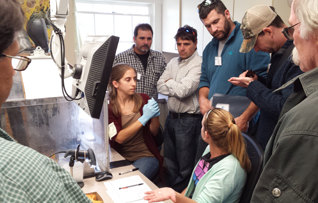 In most coastal areas of the United States where fishing is a significant part of the economy, it’s taken for granted that fishermen and regulators don’t think fondly of each other. Fishermen are convinced regulators don’t know what they’re doing. Regulators are frustrated that fishermen don’t put much stock in their scientific assessments. This mistrust has real consequences. Fishermen begrudge – and sometimes flaunt – regulatory decisions. Regulators come off as vengeful or pedantic. Meetings between the two parties devolve into shouting matches. Scientific conclusions get ignored or flaunted, and opportunities for improving the accuracy of stock estimates through greater participation are lost amidst the acrimony. About 15 years ago, two members of the New England fishing industry, John Williamson and Mary Beth Tooley, created the Marine Resource Education Program (MREP) with the goal of initiating a more positive era of fisher-regulator relations. Read the story here, two pages 21:09
In most coastal areas of the United States where fishing is a significant part of the economy, it’s taken for granted that fishermen and regulators don’t think fondly of each other. Fishermen are convinced regulators don’t know what they’re doing. Regulators are frustrated that fishermen don’t put much stock in their scientific assessments. This mistrust has real consequences. Fishermen begrudge – and sometimes flaunt – regulatory decisions. Regulators come off as vengeful or pedantic. Meetings between the two parties devolve into shouting matches. Scientific conclusions get ignored or flaunted, and opportunities for improving the accuracy of stock estimates through greater participation are lost amidst the acrimony. About 15 years ago, two members of the New England fishing industry, John Williamson and Mary Beth Tooley, created the Marine Resource Education Program (MREP) with the goal of initiating a more positive era of fisher-regulator relations. Read the story here, two pages 21:09

































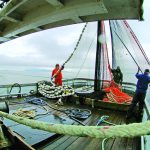
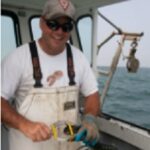
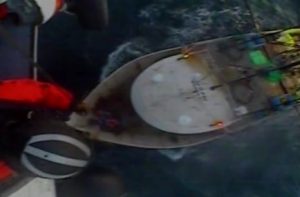


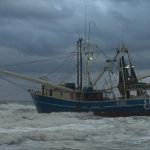
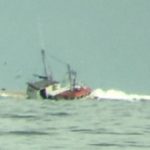
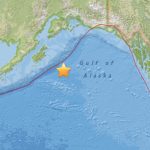
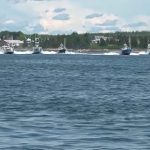



“Regulators are frustrated that fishermen don’t put much stock in their scientific assessments.”
Really? Ya think? Well I’ll offer this perspective. When fishermen see results from a program that will allow them to prosper rather than this constant taking away perhaps there will be some trust built.
When you see the effects of decisions made by regulators,…. no, when you have lived with and been dealt the blows of decisions made by regulators, based on surveys that are in many instances up to 400% off, what is so surprising about not having any street cred?
When fishermen try to add their knowledge and observations to this flawed system and are shouted down by these so called leaders are you that surprised that there is an element of resentment?
The fisheries have been hijacked by special interest groups who are politically connected and have infiltrated the governing bodies of this flawed system at the highest levels.
Until leaders recognize this and do something about it, nothing will change my mind. The current system is flawed and corrupt.
When one see’s the results of something like this: https://fisherynation.com/51374-2
and we see no change to protocol in the surveys you’re damn right we don’t put any stock in these so called “scientific assessments”.
Until leadership comes clean with industry as to their ultimate goals and plans for those still hanging on you can count on more of the same skepticism. At least from this fisherman’s point of view.
Joel….I just returned from the trawl survey methodology/collection and how they process the data used in stock assessments workshop held in Cape Cod. You should know some of the industry people that also attended, and I will just point out that everyone in the industry should go and see the issues with the BIGELOW, along with the gear they are using so that you can give your input directly to Russ Brown, Rob Johnson, Earl Meredith and those in this section of NEFSC. In this setting, those in the industry (and I am including for-hire) can at first discuss and then go back and forth on the inefficiencies that are causing the continued poor performance of their bottom trawl surveys. The program itself gives one the opportunity to meet with those in the collection and assessment part, and this is where you can continue to push for great industry inclusion in conducting side by side trawl surveys. It is far from being where it should be….most of us know that. But try to find a few days in your schedule to “press the flesh” with these people and continue to plant the seed in their head with your lifetime experience. Again I emphasize going to the MREP 200 workshop to explain to them that the “lack of trust” of those in the fishing industry with the science and regulating part will continue unless they change what is going onboard the BIGELOW. Remember this is government we are dealing with, and you will come to realize how hard it would be to just scrap the multi-millions of dollars that they have spent on that one vessel…..really sad to say since they had the chance from the start to design a better performing vessel along with making a number of performance improving modifications to the gear they are now using.